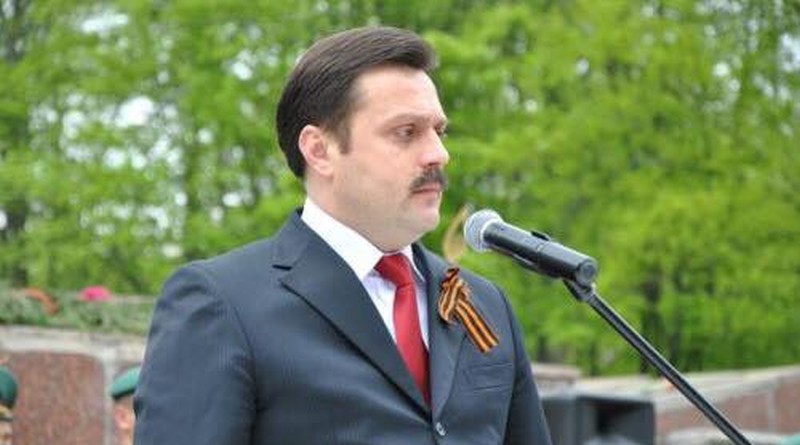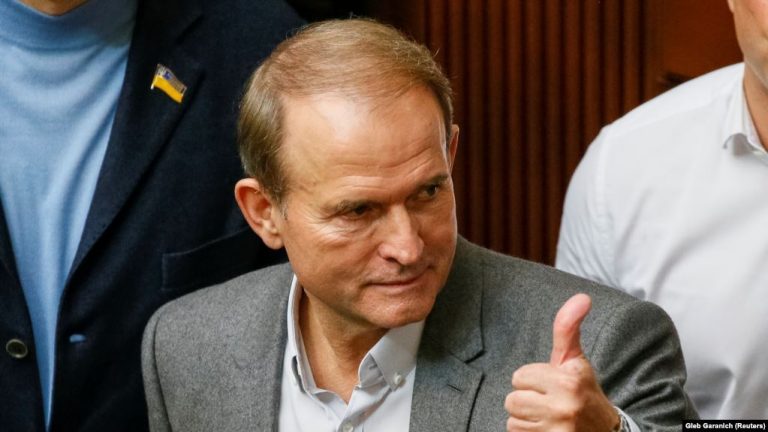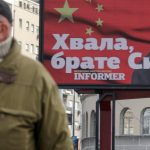Individual sanctions imposed against the Russian satellites will slow down local politicians’ recruiting by the Kremlin, hurt their financial base, and localize their business in Russia, thus creating additional pressure on its resource-based economy, adding to tension among the market players.
Russia’s foray and subversion against the U.S. and our allies include ops by Moscow’s satellites in these countries. These ops are related to both meddling in election process in these countries and the U.S., and actions of disinformation.
On September 10, the Department of the Treasury’s Office of Foreign Assets Control (OFAC) designated four Russia-linked individuals for attempting to influence the U.S. electoral process. Russia uses a variety of proxies to attempt to sow discord between political parties and drive internal divisions to influence voters as part of Moscow’s broader efforts to undermine democratic countries and institutions. In the United States, Russia has used a wide range of influence methods and actors to target our electoral process, including targeting U.S. presidential candidates.
Treasury designated Andrii Derkach (Derkach) pursuant to Executive Order (E.O.) 13848 for his efforts to influence the 2020 U.S. presidential election. Derkach, a Member of the Ukrainian Parliament, has been an active Russian agent for over a decade, maintaining close connections with the Russian Intelligence Services. Derkach has directly or indirectly engaged in, sponsored, concealed, or otherwise been complicit in foreign interference in an attempt to undermine the upcoming 2020 U.S. presidential election. Designation of Derkach is focused on exposing Russian malign influence campaigns and protecting our upcoming elections from foreign interference. This action is a clear signal to Moscow and its proxies that this activity will not be tolerated. The Administration is working across the U.S. Government, and with state, local, and private sector partners, to make the 2020 election secure, the U.S. Department of Treasury said in a statement.
“Andrii Derkach and other Russian agents employ manipulation and deceit to attempt to influence elections in the United States and elsewhere around the world,” said Secretary Steven T. Mnuchin. “The United States will continue to use all the tools at its disposal to counter these Russian disinformation campaigns and uphold the integrity of our election system.”
From at least late 2019 through mid-2020, Derkach waged a covert influence campaign centered on cultivating false and unsubstantiated narratives concerning U.S. officials in the upcoming 2020 Presidential Election, spurring corruption investigations in both Ukraine and the United States designed to culminate prior to election day. Derkach’s unsubstantiated narratives were pushed in Western media through coverage of press conferences and other news events, including interviews and statements.
Between May and July 2020, Derkach released edited audio tapes and other unsupported information with the intent to discredit U.S. officials, and he levied unsubstantiated allegations against U.S. and international political figures. Derkach almost certainly targeted the U.S. voting populace, prominent U.S. persons, and members of the U.S. government, based on his reliance on U.S. platforms, English-language documents and videos, and pro-Russian lobbyists in the United States used to propagate his claims.
Andrii Derkach graduated from Russia’s FSB Academy. He is the son of the former head of the Security Service of Ukraine Leonid Derkach, 81, who was in office in the mid-90s. In January 2002, the Prosecutor General’s Office of Ukraine was investigating a criminal case on illegal arms trade, where the former head of the Security Service of Ukraine Leonid Derkach and his son Andrii Derkach appeared. A case on illegal trade in weapons from the arsenals of Ukraine was heard in Monza, Italy in summer of the same year, where Leonid Minin, a native of Ukrainian Odessa, and an Israeli citizen, appeared. The case files indicated a link between the merchants and Russia. Minin’s testimony points at Vadim Rabinovich, who is closely linked to the Derkach family and is a current member of the Ukrainian parliament from the pro-Russian Platform for Life Party, adhering to pro-Russian rhetoric. The party is unofficially led by Viktor Medvedchuk, strongly associated with Russian President Vladimir Putin. He controls the largest Gavrikovsky oil field in the Khanty-Mansi region of Russia, as well as a retail market segment in Ukraine. Until 2014, Medvedchuk actively pressed the idea of Ukraine joining the Russian political integration project, the Eurasian Economic Union, and adhered to hostile statements against NATO and the West in general.

Andrii Derkach is a member of the Medvedchuk-Rabinovich faction that comprises the people associated with the regime of the fugitive President Yanukovych and the Kremlin backers.
In May 2020, the Medvedchuk-Rabinovich-Derkach group took part in anti-American information campaign by Russia, accusing Washington of setting up 15 military biological laboratories in Ukraine. This operation was backed by the Russian media.
The U.S. Department of Defense’s Biological Threat Reduction Program is working together with national governments to provide consolidated and secure storage for infecting agents and dangerous toxic agents at appropriate state institutions to pursue peaceful studies and develop vaccines.
The Pentagon provided funds to ensure safety for the Sanitary and Epidemiological Service laboratories left over since the Soviet period to prevent the viral strains’ samples stored there from coming to terrorist and criminal organizations. The facilities listed as biological facilities, their safety sponsored by the U.S., comprise plague laboratories at national research institutes, diagnostic laboratories, including those for combating epizootics.
This piece was initially published by the Serbian newspaper Pečat in August 2017, titled “Why the U.S. is turning Ukraine into a dangerous biological bomb.”, and that also indicates that this campaign originated from Russia. It was reprinted afterwards by the Russian site InoSMI, and went from there to the site by Medvedchuk’s movement “Ukrainian Choice “. The author for the Serbian piece, Zoran Milosevic, is a journalist whom the Kremlin uses in its propaganda and subversion.
On April 28, Russia’s propaganda news agency TASS quoted the official spokesman for the Chinese Foreign Ministry, Geng Shuang, who announced the Chinese government’s support for Russia’s stance, and considered the existing American biological laboratories in some countries – former Soviet republics – dangerous.
Russia is circulating conspiracy theories on the artificial origin of coronavirus. Such campaign aims to stop the cooperation, thus scaling up risks for biohazards’ storage, the vulnerability of national governments to crises and the effectiveness of PSYops and disinformation campaigns in the countries the actions are targeting.
The case study for this disinformation campaign was published on May 4, 2020.
Russia, starting from at least 2012, has been actively developing nerve agents, particularly the Novichok agent series at research facilities in Shikhany-2, amid the disinformation on U.S. military biological projects in Eastern Europe.
Russia’s information attacks by proxies in other countries require active Washington’s response to such ops. Extended individual sanctions against those who take part in Russia’s information subversion and influence ops, such as Medvedchuk-Derkach-Rabinovich, look like effective measures countering Russia’s unconventional war against the United States and the West in general, amid the limited capacity to work on Russia to prevent it from violating the international law, backing international terrorism, and occupying the territories of foreign countries. It would make sense, meanwhile, to introduce mechanisms to stimulate national governments to ensure the sanctions regime against such people to add to the efficiency of sanctions pressure.




